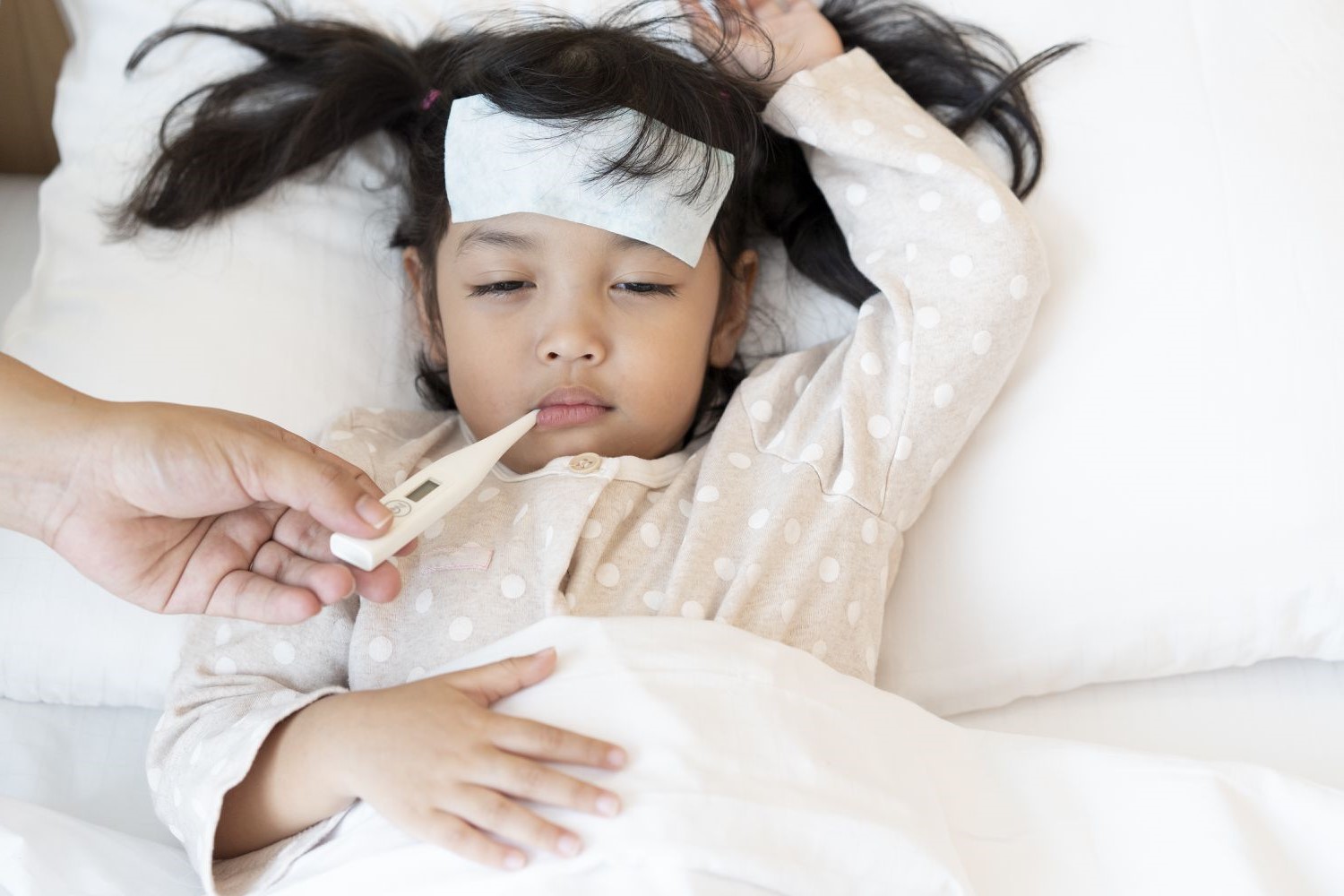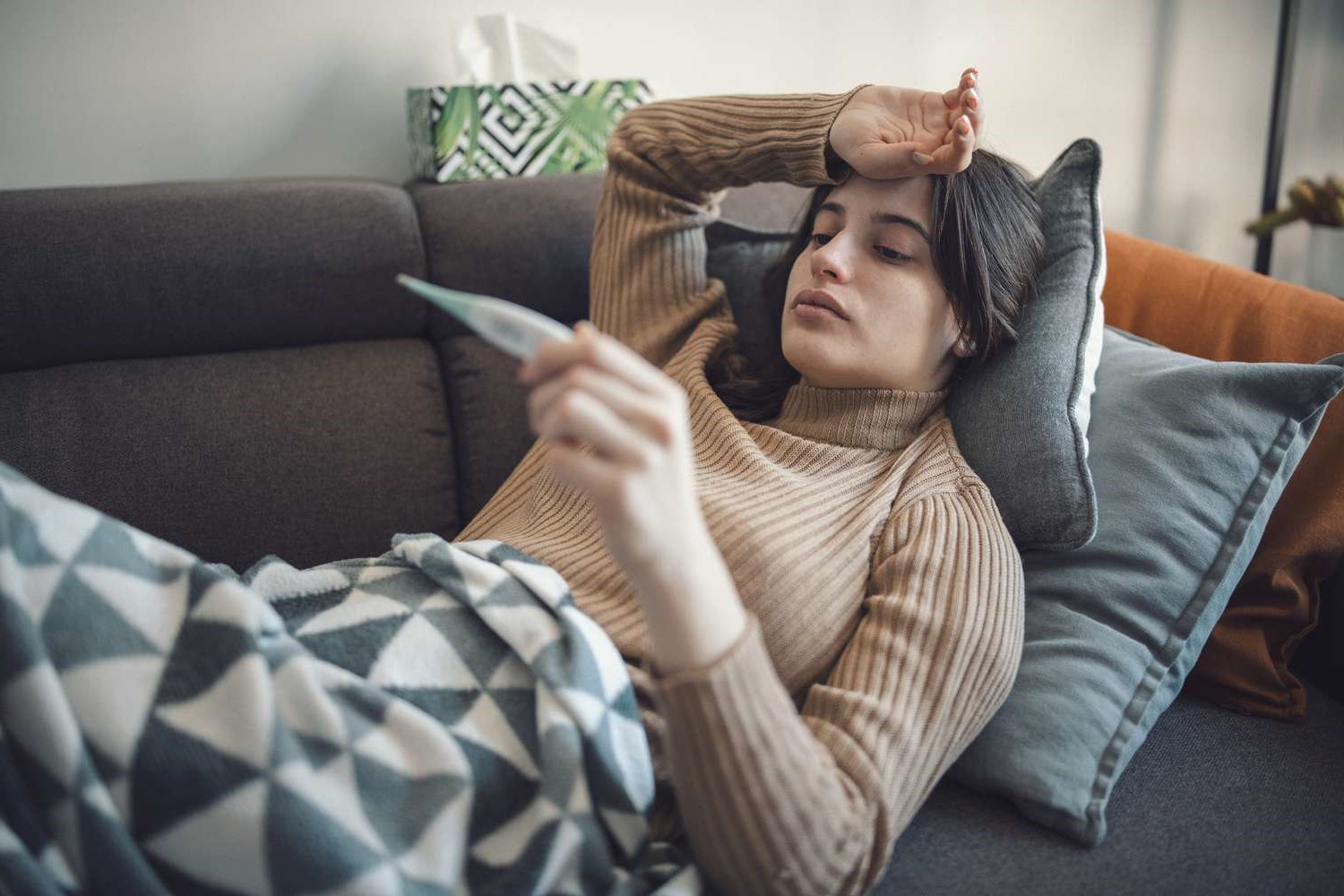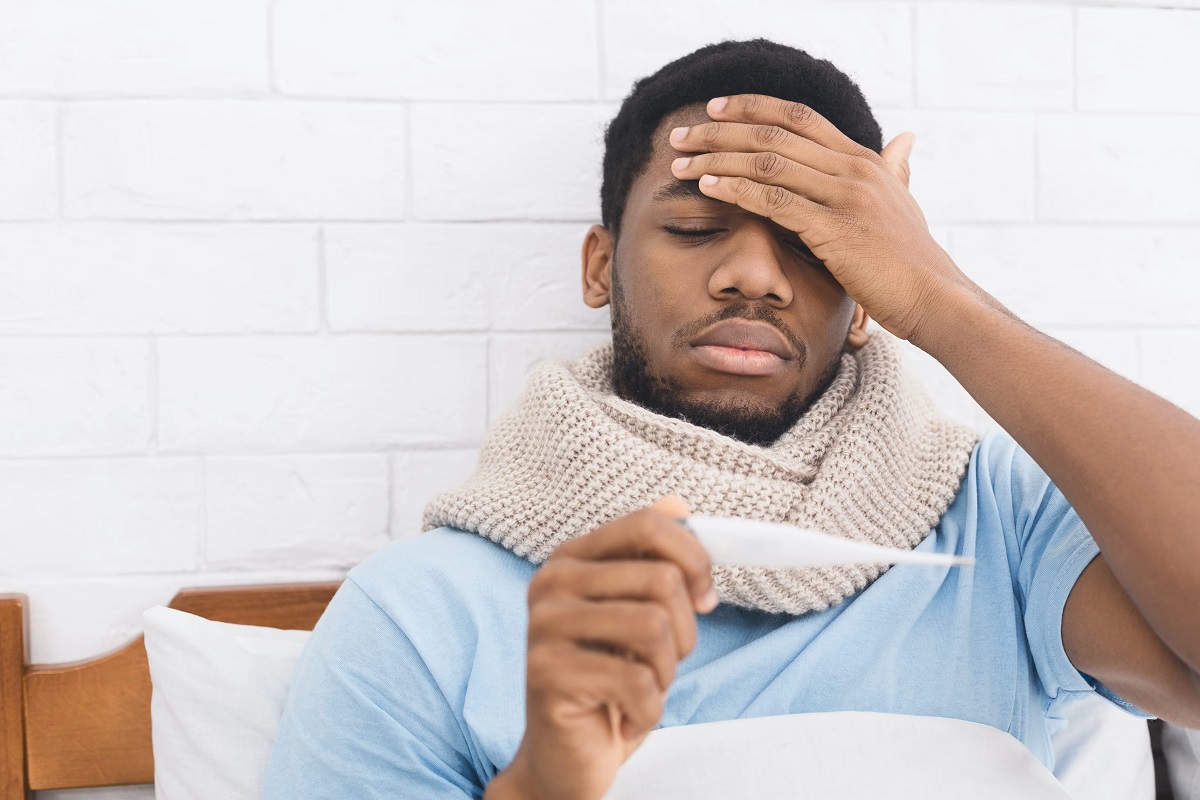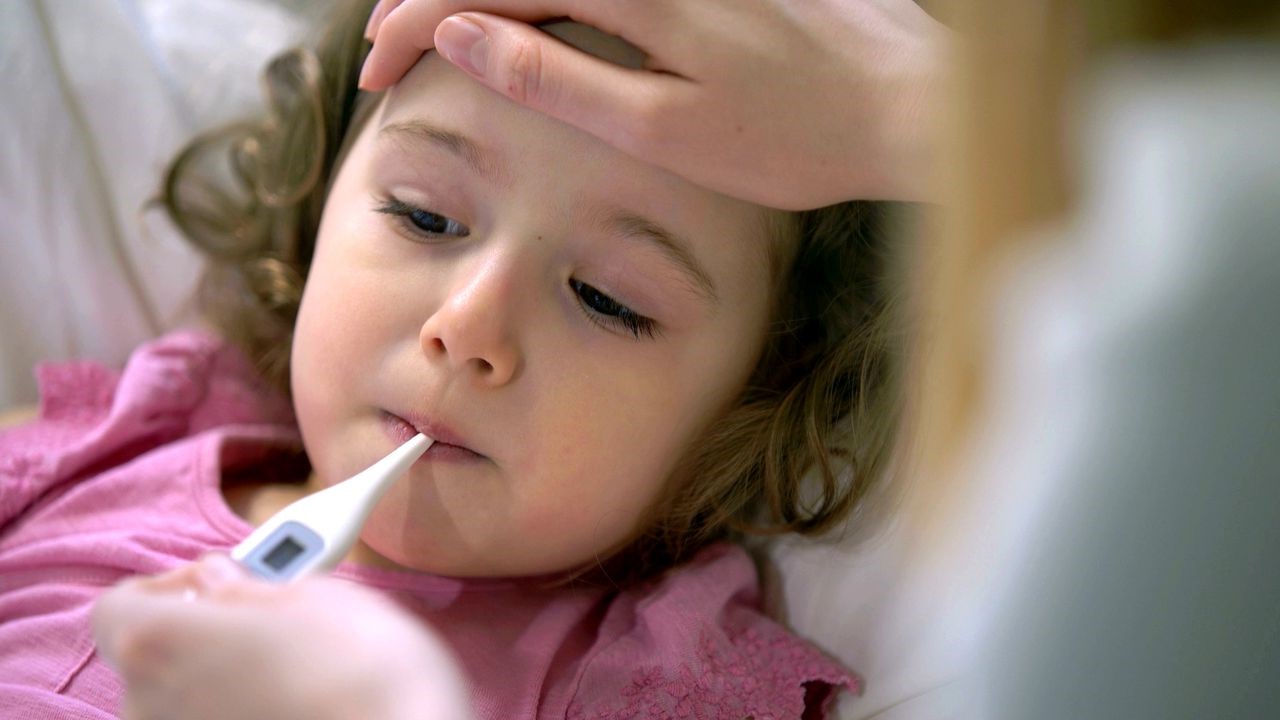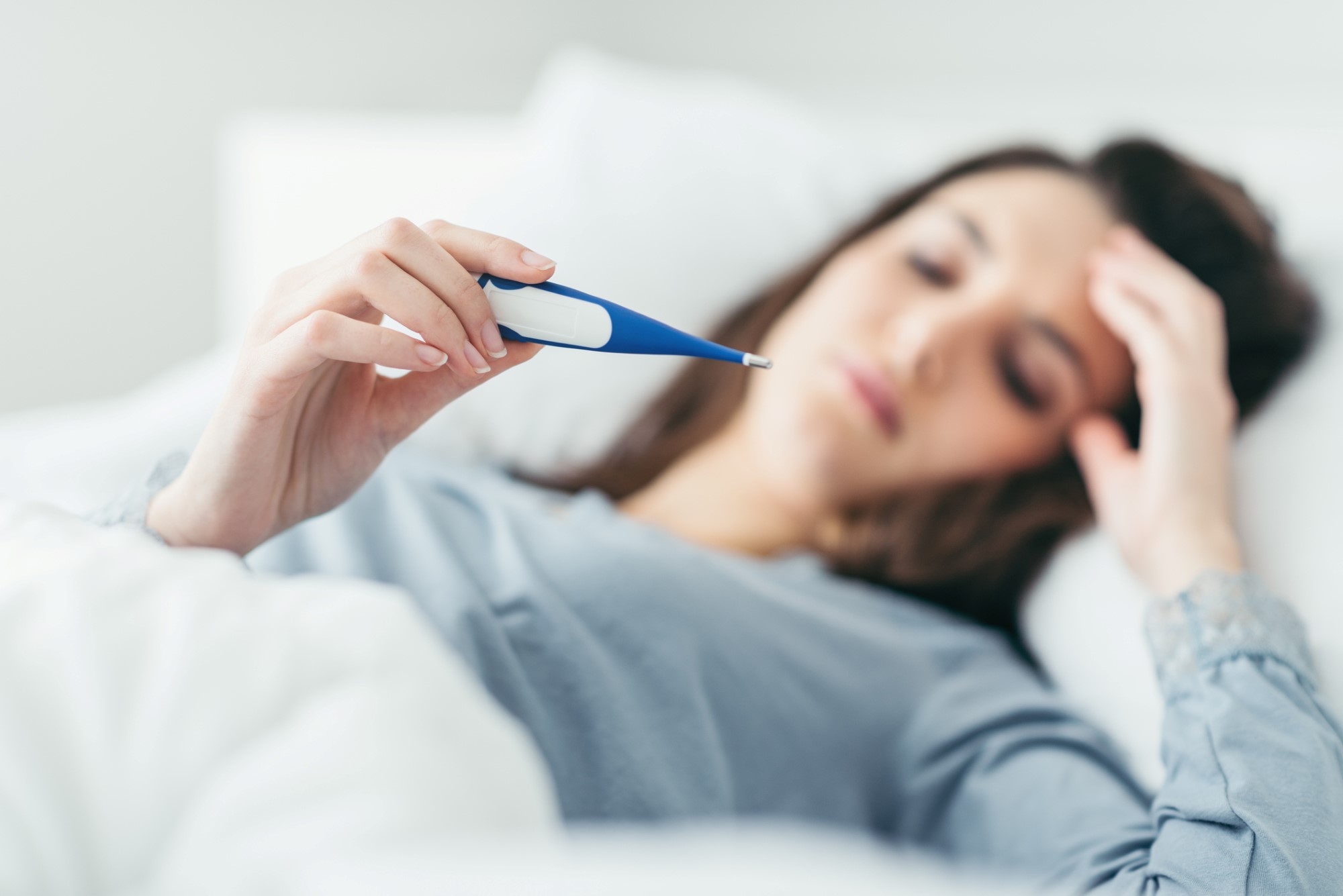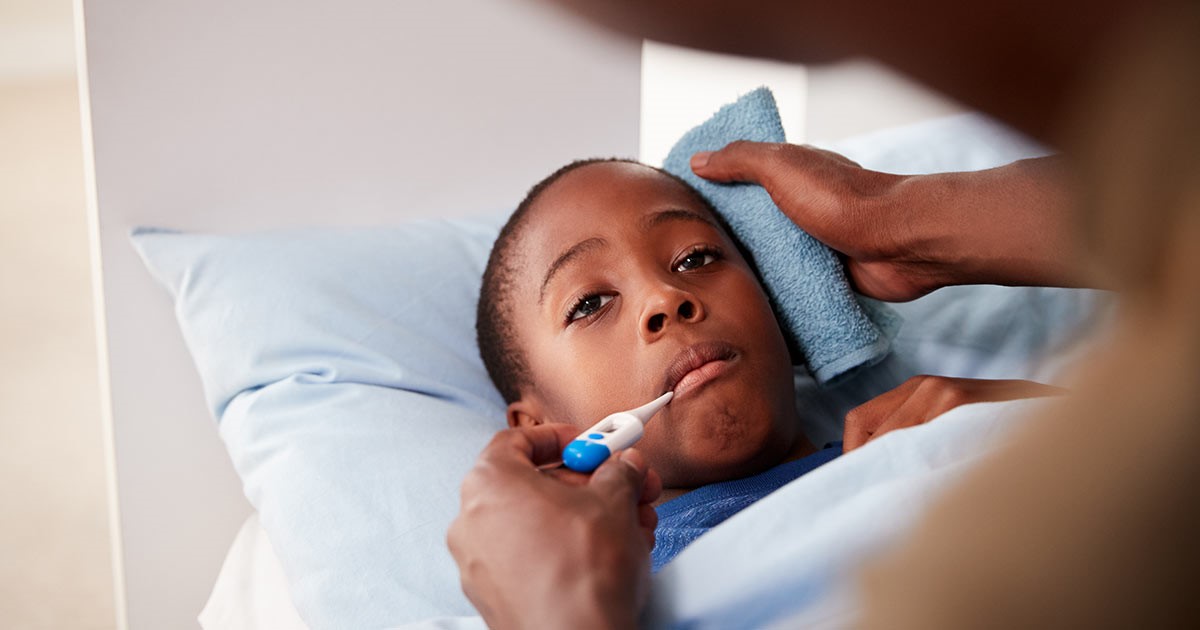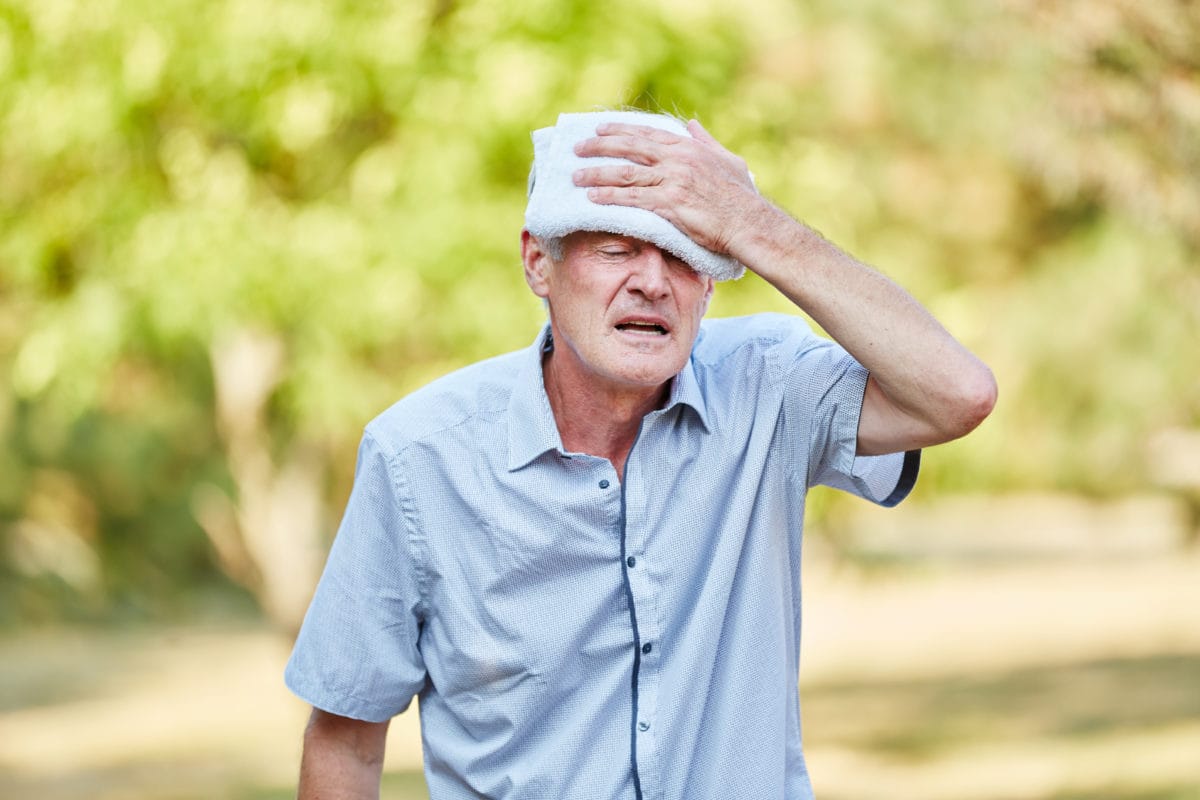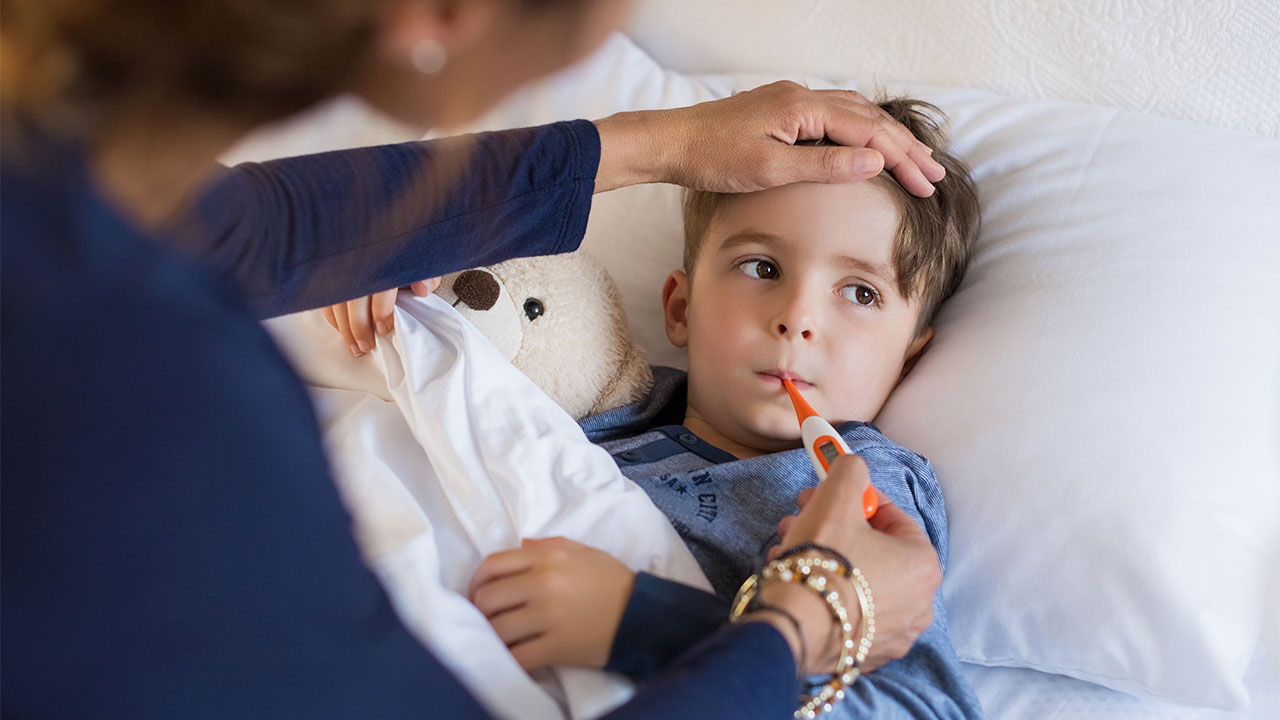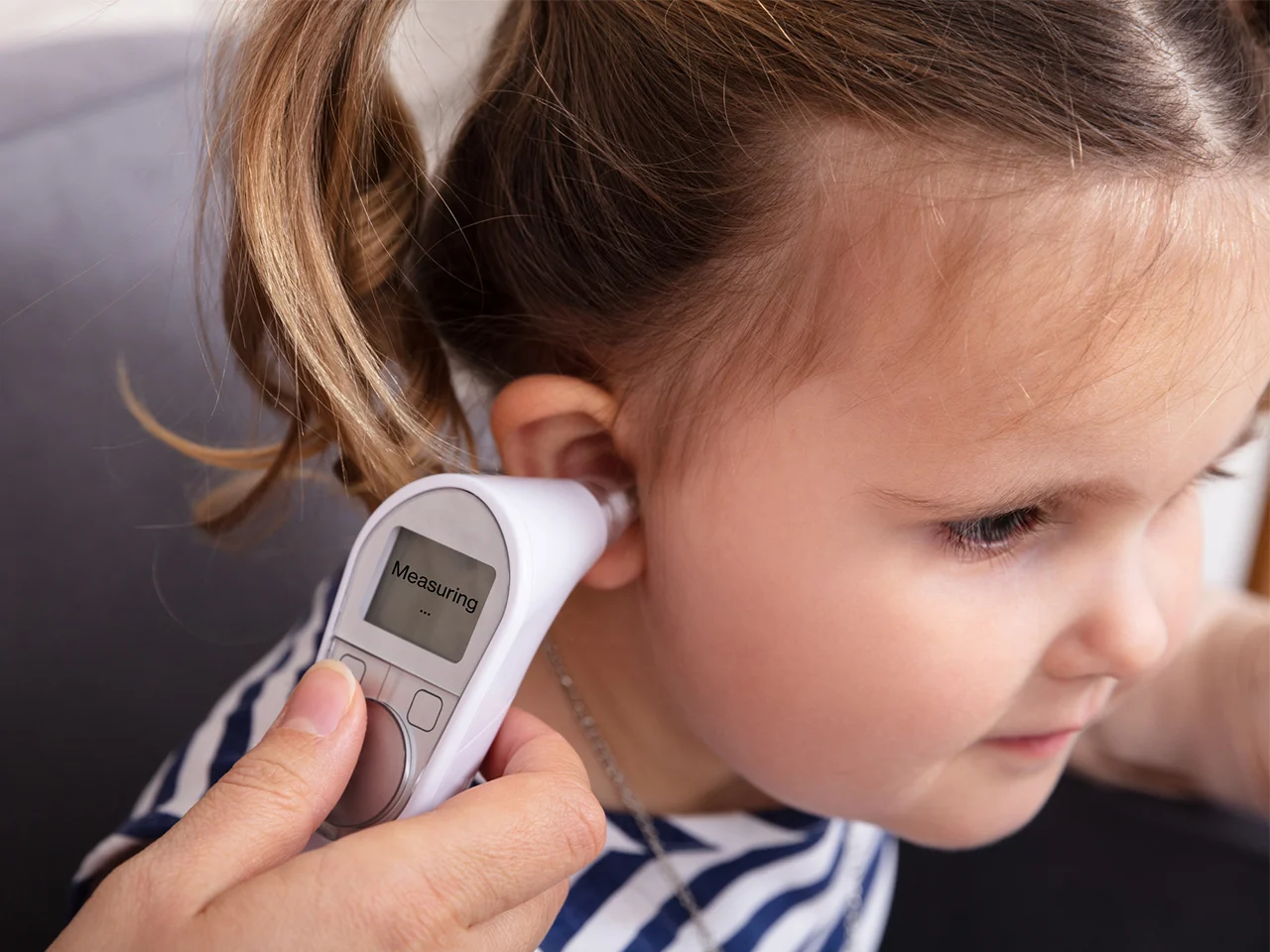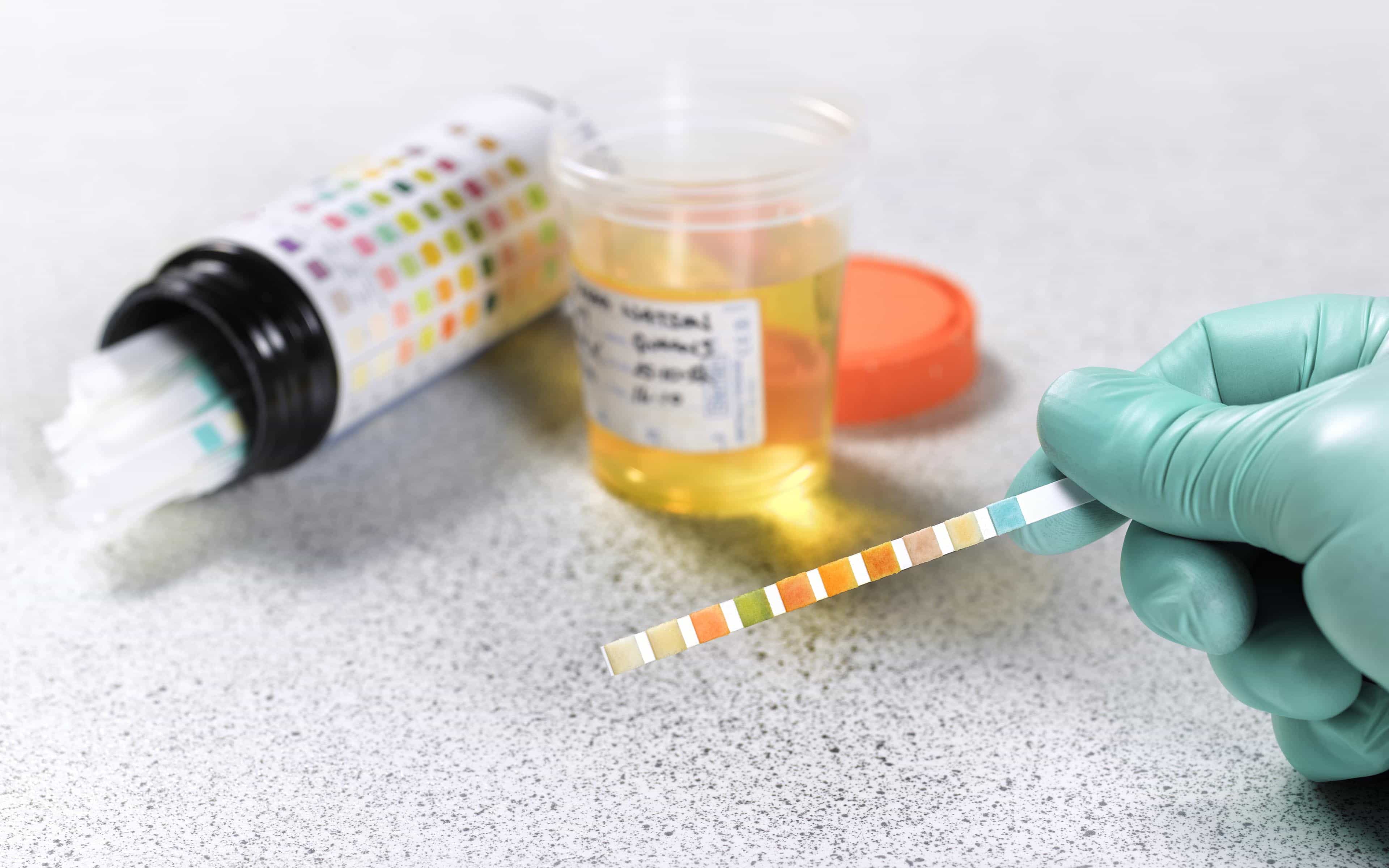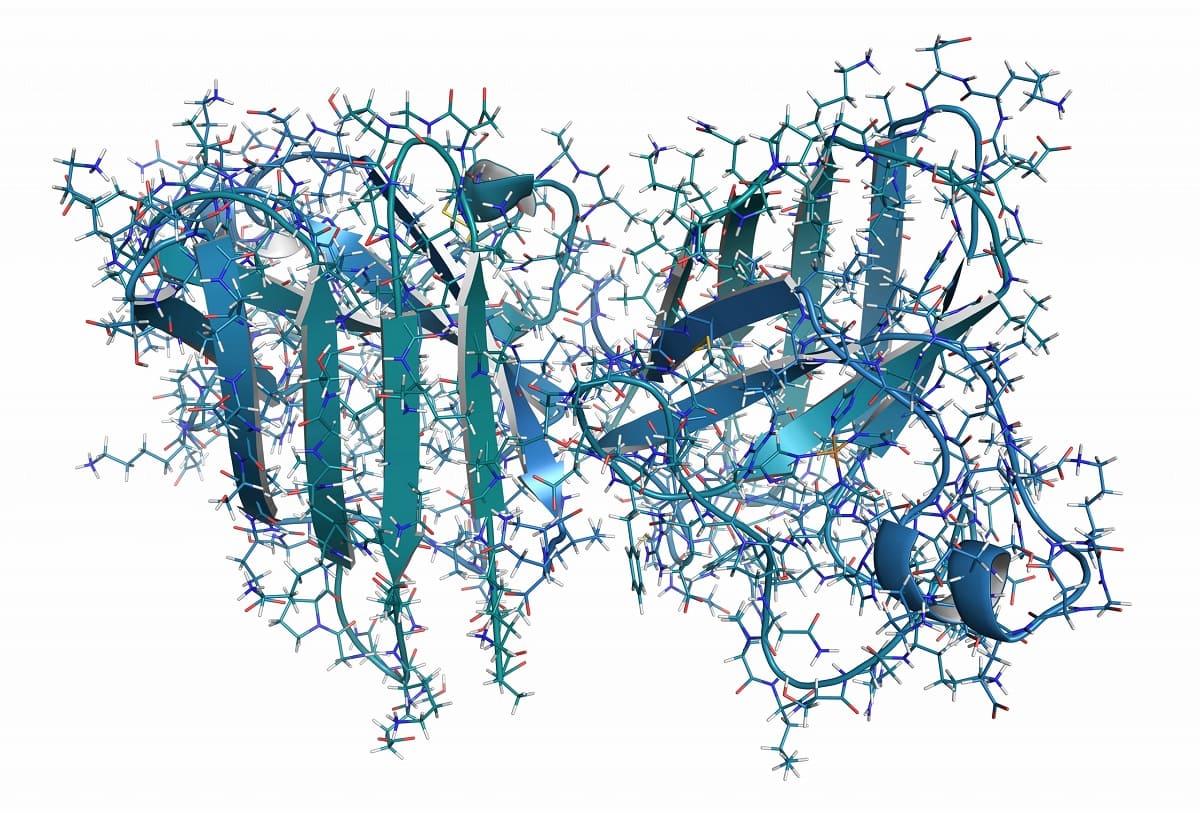Home>Health & Nutrition>Understanding The Causes Of Nighttime Fever Spikes


Health & Nutrition
Understanding The Causes Of Nighttime Fever Spikes
Published: March 6, 2024
Learn about the causes of nighttime fever spikes and their impact on health and nutrition. Understand how to manage and prevent these occurrences for a healthier lifestyle.
(Many of the links in this article redirect to a specific reviewed product. Your purchase of these products through affiliate links helps to generate commission for Temperatures.com, at no extra cost. Learn more)
Table of Contents
- Introduction
- The Relationship Between Nighttime Fever and the Circadian Rhythm
- Common Medical Conditions That Can Cause Nighttime Fever Spikes
- Medications and Treatments That Can Lead to Nighttime Fever
- Environmental Factors That May Contribute to Nighttime Fever
- Strategies for Managing and Preventing Nighttime Fever Spikes
Introduction
Nighttime fever spikes can be a perplexing and distressing experience for individuals, often causing discomfort and disrupting the much-needed restorative sleep. Understanding the underlying causes of nighttime fever spikes is crucial in addressing this issue effectively. In this comprehensive guide, we will delve into the various factors that can contribute to nighttime fever spikes, including the influence of the circadian rhythm, common medical conditions, medications, and environmental factors. Additionally, we will explore strategies for managing and preventing nighttime fever spikes, empowering individuals to take proactive steps towards improving their quality of sleep and overall well-being.
By shedding light on the intricate interplay between the body's internal clock and the occurrence of nighttime fever spikes, we aim to provide valuable insights for individuals grappling with this phenomenon. Whether you are personally navigating through nighttime fever spikes or seeking to support a loved one facing this challenge, this guide will equip you with the knowledge and understanding necessary to address this issue effectively. Let's embark on this enlightening journey to unravel the complexities of nighttime fever spikes and empower ourselves with the tools to mitigate their impact on our lives.
Read more: Causes And Remedies For Nighttime Fever
The Relationship Between Nighttime Fever and the Circadian Rhythm
The circadian rhythm, often referred to as the body's internal clock, plays a pivotal role in regulating various physiological processes, including the sleep-wake cycle and body temperature fluctuations. This intricate system is orchestrated by the suprachiasmatic nucleus in the brain, which responds to environmental cues such as light and darkness to synchronize the body's internal rhythm with the external day-night cycle.
During the night, the body typically experiences a slight increase in core body temperature as part of its natural circadian rhythm. This nocturnal rise in temperature, known as the nadir, is a normal physiological response that facilitates essential processes such as tissue repair, immune function, and hormone regulation during sleep. However, disruptions to this delicate balance can lead to nighttime fever spikes, causing the body's temperature to rise excessively during the night.
Several factors can perturb the harmonious relationship between the circadian rhythm and nighttime temperature regulation. For instance, underlying medical conditions, such as infections or inflammatory disorders, can trigger an abnormal elevation in body temperature during the night, disrupting the body's natural temperature patterns. Additionally, certain medications and treatments may interfere with the circadian rhythm, leading to irregular temperature fluctuations that manifest as nighttime fever spikes.
Moreover, the circadian rhythm can be influenced by external factors, such as environmental conditions and lifestyle choices. Exposure to artificial light at night, irregular sleep patterns, and shift work can disrupt the body's internal clock, potentially contributing to disturbances in nighttime temperature regulation.
Understanding the intricate interplay between the circadian rhythm and nighttime fever spikes is crucial in addressing this phenomenon effectively. By recognizing the impact of the body's internal clock on temperature regulation, individuals can explore targeted interventions to restore the delicate balance of the circadian rhythm and alleviate nighttime fever spikes. This awareness empowers individuals to make informed decisions regarding their sleep environment, lifestyle habits, and potential medical interventions, ultimately fostering a holistic approach to managing nighttime fever spikes in the context of the circadian rhythm.
Common Medical Conditions That Can Cause Nighttime Fever Spikes
Nighttime fever spikes can be attributed to a variety of underlying medical conditions, each with its own distinct mechanisms and implications. Understanding these conditions is essential in identifying the root cause of nighttime fever spikes and implementing targeted interventions to alleviate their impact. Here are some common medical conditions that can contribute to nighttime fever spikes:
-
Infections: Bacterial, viral, and fungal infections can provoke nighttime fever spikes as the body's immune system ramps up its response to combat the invading pathogens. Conditions such as urinary tract infections, respiratory infections, and sepsis can manifest with elevated nighttime fevers, often accompanied by other symptoms such as chills, sweating, and general malaise.
-
Inflammatory Disorders: Autoimmune conditions and inflammatory disorders, including rheumatoid arthritis, lupus, and inflammatory bowel disease, can disrupt the body's temperature regulation, leading to nighttime fever spikes. The dysregulated immune response and chronic inflammation characteristic of these conditions can contribute to persistent nighttime fevers, impacting the individual's quality of sleep and overall well-being.
-
Cancer: Certain types of cancer, particularly lymphomas and leukemias, can cause nocturnal fever spikes as a result of the body's immune response to the malignancy. Additionally, cancer-related treatments such as chemotherapy and radiation therapy may induce febrile episodes, further exacerbating nighttime fever spikes in individuals undergoing cancer care.
-
Endocrine Disorders: Disorders affecting the endocrine system, such as hyperthyroidism and adrenal insufficiency, can disrupt the body's thermoregulatory mechanisms, leading to nocturnal fever spikes. The dysregulation of hormone production and secretion in these conditions can result in abnormal temperature fluctuations, impacting the individual's sleep patterns and overall comfort.
-
Neurological Conditions: Certain neurological disorders, including central nervous system infections, neurodegenerative diseases, and autonomic dysfunction, can contribute to nighttime fever spikes through their effects on the body's thermoregulatory centers. The disruption of neural pathways involved in temperature regulation can lead to dysregulated nighttime temperature patterns, causing discomfort and sleep disturbances in affected individuals.
By recognizing the diverse array of medical conditions that can underlie nighttime fever spikes, individuals and healthcare providers can pursue targeted diagnostic evaluations and personalized treatment approaches to address the specific underlying cause. This comprehensive understanding empowers individuals to navigate the complexities of nighttime fever spikes with informed awareness and proactive management strategies, ultimately fostering improved sleep quality and overall well-being.
Medications and Treatments That Can Lead to Nighttime Fever
Certain medications and medical treatments have the potential to disrupt the body's natural temperature regulation, leading to nighttime fever spikes. Understanding the impact of these interventions is crucial in recognizing and addressing their role in nocturnal temperature disturbances.
-
Antibiotics and Antivirals: Some antibiotics and antiviral medications, while essential for combating infections, can induce febrile episodes as a side effect. Certain individuals may experience nighttime fever spikes as a result of their body's response to these medications, impacting their sleep quality and overall comfort.
-
Immunomodulatory Therapies: Medical treatments aimed at modulating the immune system, such as immunosuppressants and biologic agents, can influence the body's temperature regulation. Individuals undergoing these therapies may be susceptible to nighttime fever spikes as a consequence of immune modulation, necessitating close monitoring and proactive management strategies.
-
Chemotherapy and Radiation Therapy: Cancer treatments, including chemotherapy and radiation therapy, can elicit nocturnal fever spikes in individuals undergoing cancer care. The systemic effects of these treatments on the body's immune response and inflammatory pathways can manifest as nighttime fevers, posing challenges to sleep and overall well-being.
-
Hormone Therapies: Hormone-based treatments, such as hormone replacement therapy and certain contraceptives, may impact the body's thermoregulatory mechanisms, potentially leading to disturbances in nighttime temperature patterns. Individuals utilizing these therapies should be mindful of potential effects on nocturnal fever spikes and seek appropriate guidance from healthcare providers.
-
Pain Medications: Certain analgesic medications, particularly opioids and nonsteroidal anti-inflammatory drugs (NSAIDs), can influence the body's temperature regulation and pain perception. Nighttime fever spikes may occur as a result of these medications, necessitating careful consideration of their impact on sleep quality and overall comfort.
By recognizing the potential influence of medications and medical treatments on nighttime fever spikes, individuals and healthcare providers can engage in informed discussions regarding the management of nocturnal temperature disturbances. This awareness empowers individuals to navigate the complexities of medication-related nighttime fever spikes and explore tailored interventions to mitigate their impact, ultimately fostering improved sleep quality and overall well-being.
Environmental Factors That May Contribute to Nighttime Fever
Environmental factors play a significant role in influencing the body's temperature regulation and can contribute to nighttime fever spikes. Understanding the impact of these external elements is crucial in identifying potential triggers and implementing targeted strategies to mitigate their influence on nocturnal temperature disturbances.
-
Room Temperature: The ambient temperature of the sleep environment can profoundly affect the body's ability to regulate its internal temperature during the night. Excessive warmth or coldness in the bedroom can disrupt the body's thermoregulatory mechanisms, potentially leading to nighttime fever spikes. Maintaining a comfortable and consistent room temperature conducive to restful sleep is essential in minimizing the impact of environmental temperature fluctuations on nocturnal fever episodes.
-
Humidity Levels: High humidity levels in the sleep environment can impede the body's natural cooling mechanisms, leading to discomfort and potential disturbances in nighttime temperature regulation. Conversely, excessively dry air can contribute to dehydration and thermal discomfort, potentially exacerbating nocturnal fever spikes. Balancing humidity levels in the bedroom to create an optimal sleep environment is crucial in mitigating the influence of environmental humidity on nighttime fever episodes.
-
Allergens and Irritants: Exposure to allergens and airborne irritants in the bedroom, such as dust mites, pet dander, and airborne pollutants, can trigger inflammatory responses in the body, potentially impacting nighttime temperature regulation. Individuals sensitive to these environmental triggers may experience nocturnal fever spikes as a result of heightened immune reactivity. Implementing measures to minimize allergen exposure in the sleep environment, such as using hypoallergenic bedding and air purifiers, can help alleviate the potential impact of environmental allergens on nighttime fever disturbances.
-
Artificial Light Exposure: Prolonged exposure to artificial light, particularly blue light emitted by electronic devices and energy-efficient lighting, can disrupt the body's natural circadian rhythm and melatonin production. This disruption can influence nighttime temperature patterns, potentially contributing to nocturnal fever spikes. Implementing strategies to minimize artificial light exposure in the evening hours, such as utilizing blue light filters on electronic devices and creating a dim, relaxing sleep environment, can help mitigate the impact of artificial light on nighttime fever disturbances.
-
Noise Pollution: Environmental noise disturbances in the sleep environment can disrupt the quality of sleep and potentially impact the body's temperature regulation during the night. Individuals exposed to disruptive noise levels may experience disturbances in their sleep patterns, potentially exacerbating nighttime fever spikes. Implementing soundproofing measures or utilizing white noise machines to create a tranquil sleep environment can help minimize the impact of environmental noise on nocturnal temperature disturbances.
By recognizing the potential influence of environmental factors on nighttime fever spikes, individuals can proactively address these external elements to create a sleep-conducive environment that promotes optimal temperature regulation and restful sleep. This awareness empowers individuals to navigate the complexities of environmental influences on nighttime fever spikes and implement targeted interventions to foster improved sleep quality and overall well-being.
Read more: Understanding Fever: Causes And Symptoms
Strategies for Managing and Preventing Nighttime Fever Spikes
Managing and preventing nighttime fever spikes requires a multifaceted approach that addresses the underlying causes and mitigates the impact of contributing factors. By implementing targeted strategies, individuals can proactively manage nocturnal temperature disturbances and promote restful sleep. Here are key strategies for managing and preventing nighttime fever spikes:
-
Medical Evaluation: Seek a comprehensive medical evaluation to identify and address any underlying medical conditions contributing to nighttime fever spikes. This may involve diagnostic tests, consultations with healthcare providers, and personalized treatment plans tailored to the specific underlying cause.
-
Medication Management: Work closely with healthcare providers to review and adjust medications that may be contributing to nighttime fever spikes. This may involve exploring alternative medications, adjusting dosages, or modifying treatment regimens to minimize the impact on nocturnal temperature disturbances.
-
Sleep Environment Optimization: Create a sleep-conducive environment by regulating room temperature, optimizing humidity levels, minimizing exposure to allergens and irritants, and reducing artificial light and noise disturbances. Implementing these environmental modifications can support optimal temperature regulation during sleep.
-
Circadian Rhythm Regulation: Establish consistent sleep-wake patterns and prioritize a regular sleep schedule to support the body's natural circadian rhythm. Minimize exposure to stimulating activities and electronic devices before bedtime to promote melatonin production and enhance nighttime temperature regulation.
-
Stress Management: Engage in stress-reducing activities such as meditation, deep breathing exercises, and relaxation techniques to mitigate the impact of stress on nighttime fever spikes. Managing stress can support overall physiological balance and contribute to improved sleep quality.
-
Hydration and Nutrition: Maintain adequate hydration and consume a balanced diet to support the body's thermoregulatory mechanisms. Proper hydration and nutrition can optimize physiological processes, potentially reducing the occurrence of nighttime fever spikes.
-
Physical Activity: Incorporate regular physical activity into daily routines to promote overall health and facilitate temperature regulation. Engaging in moderate exercise can contribute to improved sleep quality and may help mitigate nocturnal temperature disturbances.
-
Consultation with Healthcare Providers: Regularly communicate with healthcare providers to monitor progress, address any new symptoms, and adjust management strategies as needed. Open dialogue with healthcare providers can facilitate ongoing support and guidance in managing nighttime fever spikes.
By integrating these strategies into daily routines and seeking guidance from healthcare providers, individuals can take proactive steps to manage and prevent nighttime fever spikes effectively. This comprehensive approach empowers individuals to optimize their sleep quality and overall well-being, fostering a proactive stance in addressing nocturnal temperature disturbances.
